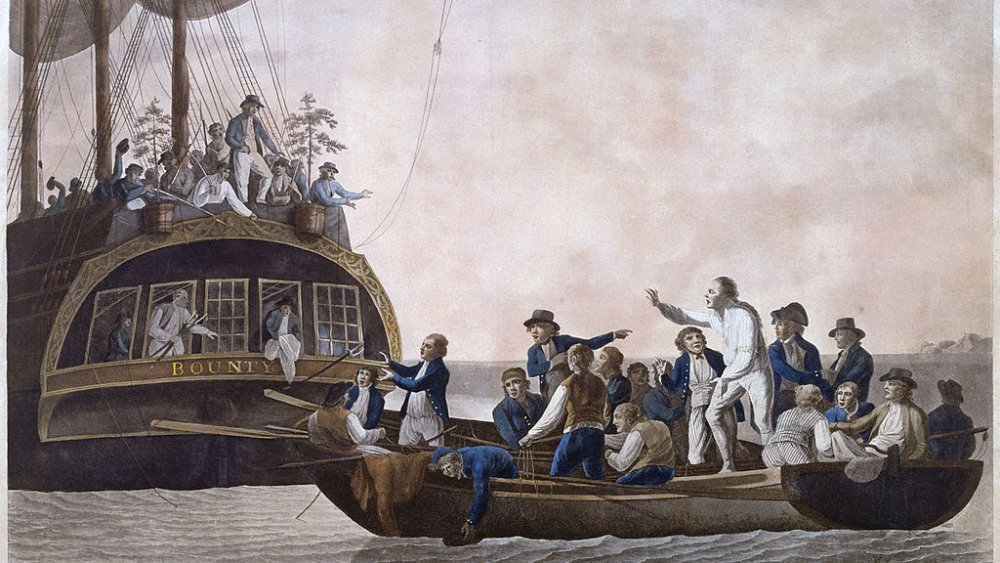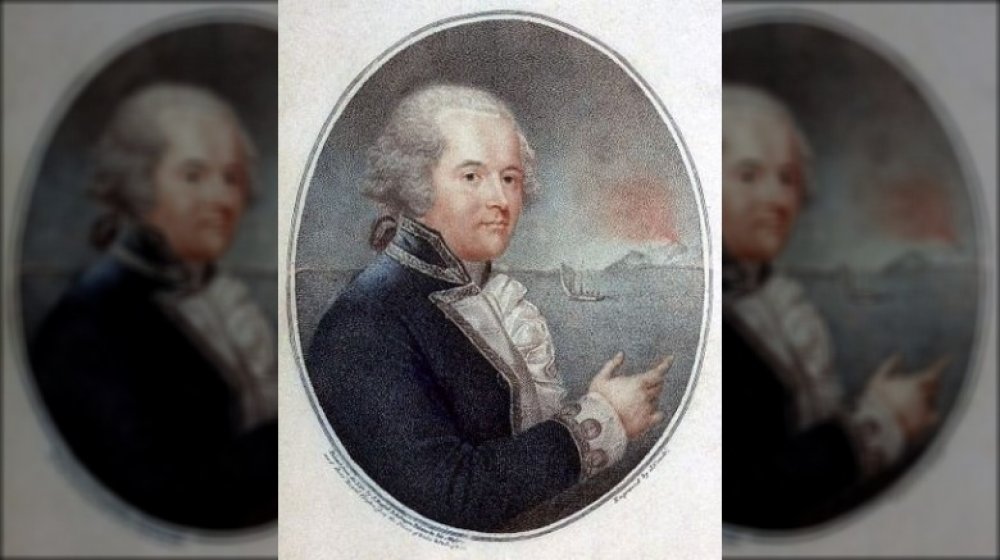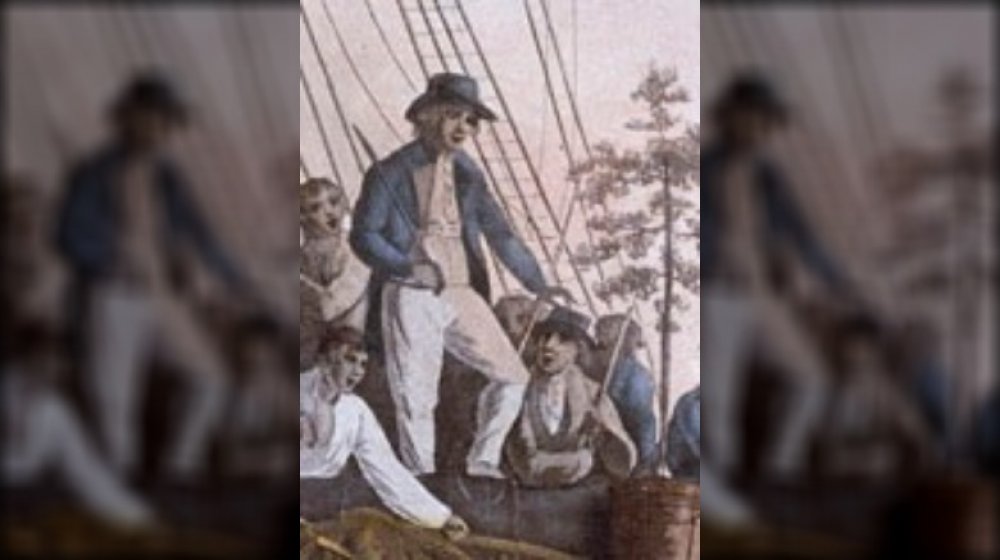The Amazing True Story Of The Mutiny On 'The Bounty'
It's safe to say that April 28, 1789, was not Lieutenant William Bligh's best day ever. He was leader of a successful mission so far — sailing from England to Tahiti to gather up bread plants, which would then be taken to grow and inexpensively feed workers (read: slaves) on plantations in the West Indies. But as History tells us, at dawn he was awakened by five members of his crew, including one of his Master's Mates, Fletcher Christian. And they were armed. And they were not happy. Which seems odd, on the surface of it — they'd all just spent over six months on what was generally considered an island paradise in the South Pacific, inhabited by generous, friendly — very, very friendly — people. But now a mutiny was in progress — the sailors were taking control from the ship's captain, a truly heinous act by the standards of the time (or any standards, before or since). If the mutiny failed and they were caught, they'd be tried and, if convicted, hanged. What drove the men to take such a remarkable step?
Bye-bye, Bligh
Historians — no surprise — disagree. Some suggest that Bligh was too harsh on his crew, but comparisons with other British naval commanders show he was nothing out of the norm. Some suggest that the thought of leaving Tahiti and its very, very friendly people was too hard — some of the sailors had formed actual relationships and partnerships with Tahitian women, including Christian. And when you compare the two — life aboard a cramped, smelly English sailing ship, complete with no privacy and a distinct lack of haute cuisine, or a South Seas paradise with fresh food, ocean breezes, loving companionship — is anyone surprised? Still others suggest that Christian and Bligh had experienced a falling-out: that their shipboard relationship was more than professional, and life on Tahiti had given Christian other — okay, we'll say it: romantic — opportunities, as hypothesized in Richard Hough's Captain Bligh and Mr. Christian: The Men and the Mutiny. Whatever the reason, Bligh and those who took his side were put into a small, open boat, with minimal provisions and navigational tools, and set adrift, probably to die.
Fletcher Christian wasn't very Christian
But Bligh fooled them. In a feat of navigational skill admired to this day, Bligh managed to steer his boat and his men across 3,600 miles of open sea for about two-and-a-half months to arrive safely in Timor, in the East Indies. For their part, Christian and the other mutineers tried to establish something of their own colony, but after trying to build a fort were driven off. They returned to Tahiti, but knew they couldn't stay — there was still the possibility the Royal Navy would come looking for them — and so they kidnapped men and not enough women and took once again to the open sea, looking for a hidden sanctuary. They settled on Pitcairn Island, where they stripped the ship of anything usable and set fire to what was left. An attempt at a vaguely utopian community followed, but so did alcoholism, brutality and, eventually, an uprising of the kidnapped men against their English captors.
A house is not a home
Murders were committed, and by the time an American whaling vessel found the remaining community, only one mutineer, John Adams, was still alive. Most of what we know about the Pitcairn years comes from him, but he was also notoriously inconsistent in his stories. As Caroline Alexander points out in her book The Bounty, we really don't know for certain what happened there — and so of course there are rumors that Fletcher Christian found a way off the island and back to England, incognito. As for Bligh, as the website for the Royal Museums Greenwich tells us, he went on to a somewhat checkered career in various administrative posts, both with the Royal Navy and otherwise, including an actually successful Tahitian breadfruit expedition. He died, age 63, in London. But before that, he was the subject of another mutiny while serving as Governor of New South Wales, Australia. Some people never learn.



